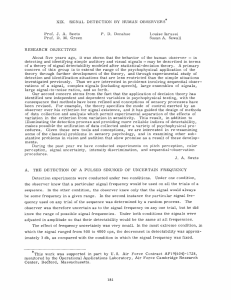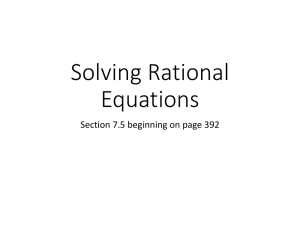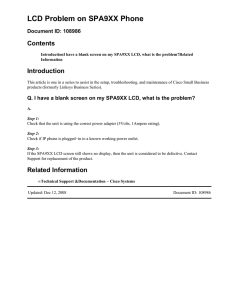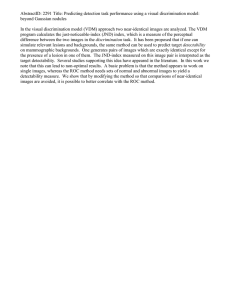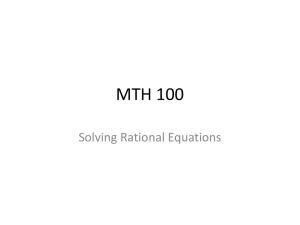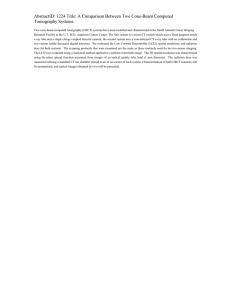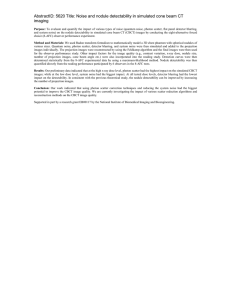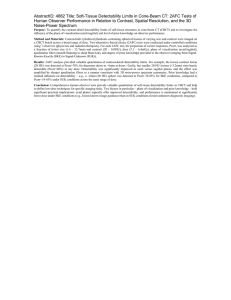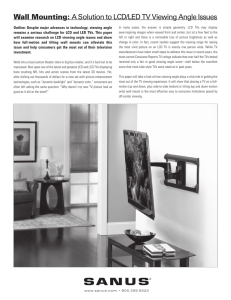AbstractID: 2100 Title: Objective Measurement of Low Contrast Detectability in... Images
advertisement
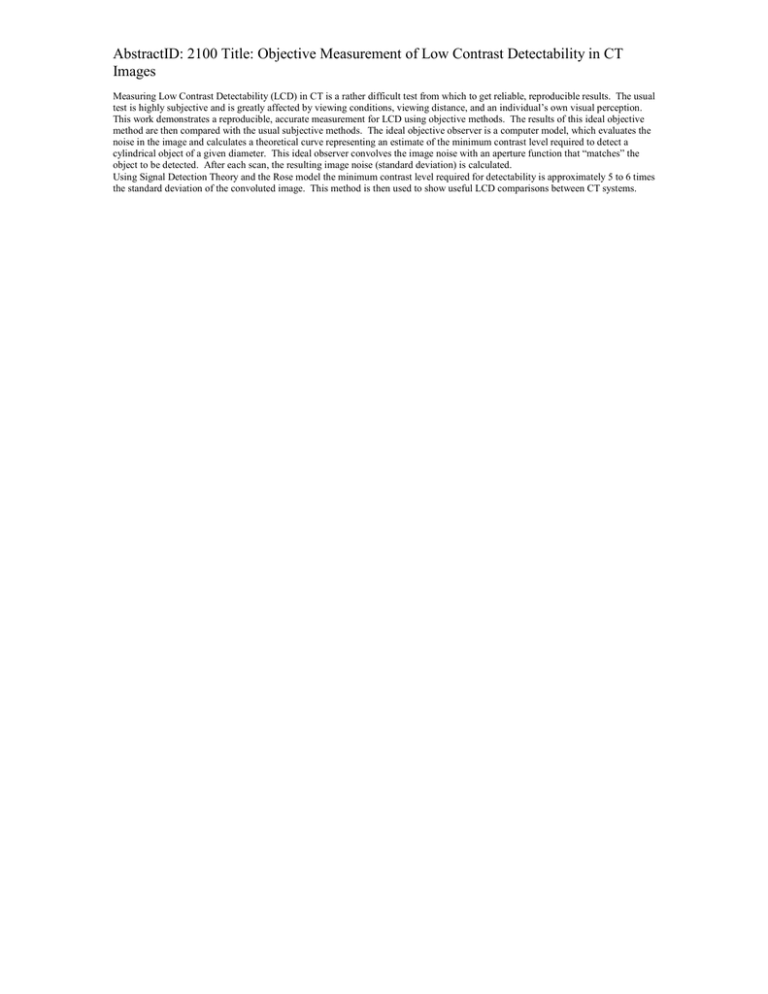
AbstractID: 2100 Title: Objective Measurement of Low Contrast Detectability in CT Images Measuring Low Contrast Detectability (LCD) in CT is a rather difficult test from which to get reliable, reproducible results. The usual test is highly subjective and is greatly affected by viewing conditions, viewing distance, and an individual’s own visual perception. This work demonstrates a reproducible, accurate measurement for LCD using objective methods. The results of this ideal objective method are then compared with the usual subjective methods. The ideal objective observer is a computer model, which evaluates the noise in the image and calculates a theoretical curve representing an estimate of the minimum contrast level required to detect a cylindrical object of a given diameter. This ideal observer convolves the image noise with an aperture function that “matches” the object to be detected. After each scan, the resulting image noise (standard deviation) is calculated. Using Signal Detection Theory and the Rose model the minimum contrast level required for detectability is approximately 5 to 6 times the standard deviation of the convoluted image. This method is then used to show useful LCD comparisons between CT systems.
